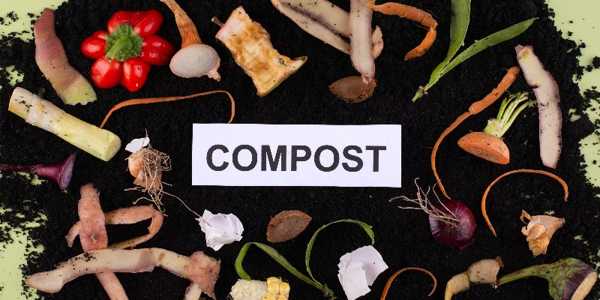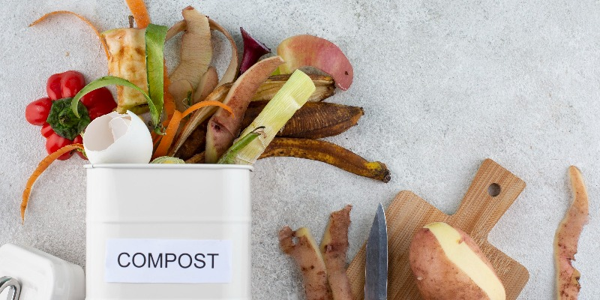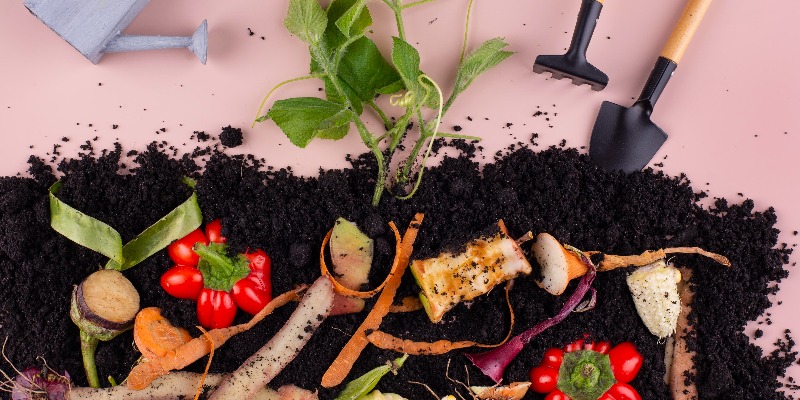
How To Start A Compost Pile At Home
 Home & Garden
Home & Garden Have you ever wondered what happens to those fruit peels that you throw in the garbage? Where do the coffee grounds go? They don’t just disappear. They’re transformed into something valuable for your garden. This all happens through a process called composting. If you have been wondering how to start a compost pile at home but feel unsure, don’t worry. This guide is here to help you push past any hesitation and take that first step toward creating your very own compost pile.
Have you ever wondered what happens to those fruit peels that you throw in the garbage? Where do the coffee grounds go?
They don’t just disappear. They’re transformed into something valuable for your garden. This all happens through a process called composting.
If you have been wondering how to start a compost pile at home but feel unsure, don’t worry. This guide is here to help you push past any hesitation and take that first step toward creating your very own compost pile.
What Is Composting And Why Should You Do It?
Composting is a natural process of decomposition of organic materials into a rich nutrient matter called humus.
It can enrich your soil. It can boost plant health. It can even reduce your reliance on chemical fertilizers.
But it is not just about gardening.
Composting at home is good for the environment as well.
It reduces the amount of waste sent to landfills. Organic matter in landfills produces methane. This is a potent greenhouse gas.
Composting gives a chance for these materials to decompose properly. It helps in cutting down on emissions and contributing to a healthier planet.
Additionally, composting saves money.
You do not need to purchase commercial fertilizers. You can create your nutrient-rich compost for free.
It’s a win-win for your wallet and your garden.

The Basics of Starting a Compost Pile
Choosing the Right Location
The first step is finding a good spot. It is essential for your compost pile.
Ideally, choose a location that’s:
Convenient: Close to your kitchen or garden for easy access.
Shaded: Too much sun can dry out the compost, while too little can slow decomposition.
Well-Drained: You must avoid areas that collect water. The compost pile should stay moist. It should not be soggy.
If you live in a small space, consider using a compost bin or tumbler. It keeps things neat and manageable.
Gathering Materials
Composting requires two main types of materials:
Greens (Nitrogen-Rich): Fruit and vegetable scraps, coffee grounds, grass clippings.
Browns (Carbon-Rich): Dry leaves, cardboard, shredded newspaper.
A good compost pile has a balanced composition. It has a mix of greens and browns. You should also aim for a ratio of 2:3 (two parts brown to three parts green). This will ensure proper decomposition.
What NOT to Compost
Meat, dairy, and oily foods (these attract pests).
Diseased plants.
Pet waste.
Non-organic materials like plastic or metal.
For those just starting out, keeping a simple list of what to compost and what not to compost near your kitchen bin can be a helpful reminder.
Step-By-Step: Building Your Compost Pile
1. Start With a Base Layer
Begin with a layer of coarse browns, such as twigs or straw, to allow airflow at the bottom of the pile. This prevents your compost from becoming too compacted.
2. Alternate Layers
Add greens and browns in alternating layers. For example:
Layer 1: Kitchen scraps (greens).
Layer 2: Shredded cardboard (browns).
This layering method ensures that your pile has a balance of carbon and nitrogen.
3. Maintain the Right Moisture Level
Your compost pile should feel like a wrung-out sponge. Too dry? Add water or more greens. Too wet? Add more browns to absorb excess moisture.
4. Turn Your Pile Regularly
Turning the pile every 1-2 weeks introduces oxygen, speeding up the decomposition process. Use a pitchfork or compost aerator to mix the layers thoroughly.
5. Be Patient
Composting takes time. Depending on your method and materials, you’ll have finished composting in 2-6 months. When the material is dark, crumbly, and smells earthy, it’s ready to use.
Common Problems and Solutions
1. The Pile Smells Bad
Cause: Too many greens or not enough air.
Solution: Add more browns and turn the pile more frequently.
2. The Pile Is Not Breaking Down
Cause: Lack of moisture, air, or an imbalance of materials.
Solution: Adjust the moisture level and ensure proper layering of greens and browns.
3. The Pile Attracts Pests
Cause: Presence of meat, dairy, or uncovered food scraps.
Solution: Avoid composting restricted items and bury food scraps under a layer of brown.
4. The Pile Is Too Dry or Too Wet
Cause: Environmental factors such as weather or improper material balance.
Solution: Monitor the pile’s moisture regularly. In dry weather, water the pile lightly; during wet seasons, cover it with a tarp to prevent oversaturation.
Creative Uses for Your Compost
Garden Beds: Mix it into your garden soil for a natural fertilizer.
Potted Plants: Add a small amount to your indoor plants for a nutrient boost.
Lawn Care: Spread it thinly over your lawn to improve soil health.
Community Projects: Share extra compost with neighbors or local gardening clubs to promote sustainable practices in your community.

Final Tips for Successful Composting
Chop larger items like vegetable stalks or cardboard into smaller pieces to speed up decomposition.
Avoid overloading your pile with one type of material. Variety is key!
Keep a small compost bin in your kitchen to make collecting scraps easier.
Be consistent. Regularly adding to and maintaining your compost pile will yield the best results.
Starting a compost pile at home may seem like it is a huge task, but in reality, when you ponder over it, it is not that difficult. You can do this with little effort.
It's truly a wonderful way of converting kitchen trash into treasure in no time!
From gardening enthusiasts to those who want to reduce everyday waste, anyone can pick up composting in the comfort of their home for this purpose.
Compost empowers you to become part of a positive approach towards your life and in return to the planet on Earth!
